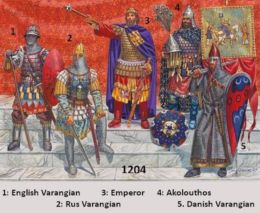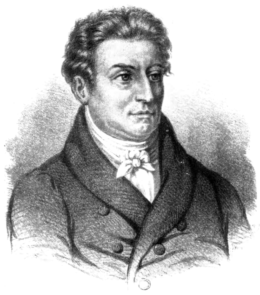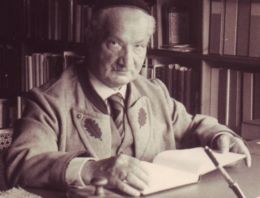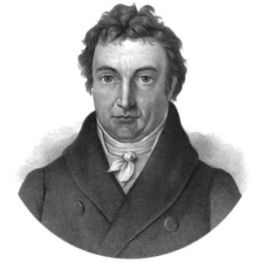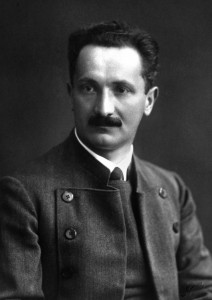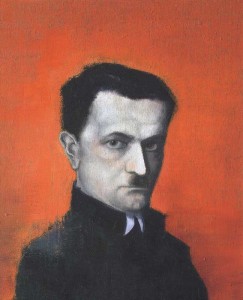Tag: Martin Heidegger
-
August 5, 2022 Greg Johnson
Rozhovor s Alainom de Benoistom o kresťanstve
2,290 slová
English original: Part 1, Part 2
V roku 2005 poskytol Alaine de Benoist rozhovor pre The Occidental Quarterly, ktorý bol publikovaný pod titulom „Syn Európy: Rozhovor s Alainom de Benoist.“ Rozhovor bol veľmi obšírny a nakoniec sa pristúpilo k jeho skráteniu. (more…)
-
2,283 words
In those cursed and difficult years when I still worked in an office (tfu tfu), the aspect I most hated was the forced socialization. (more…)
-
1,783 words
Part 3 of 4 (Part 1 here, Part 2 here, Part 4 here)
Translated by F. Roger Devlin
Just as it would be vain to oppose to abstract equality a similarly abstract inequality, it would in my opinion be mistaken to try to oppose nationalism or ethnocentrism to the ideology of Sameness. (more…)
-
February 18, 2022 Collin Cleary
Fichte as Avatar of the Metaphysics of Presence
1. Introduction: Remind me, why Fichte?
Readers have been asking me why I am devoting multiple essays to J. G. Fichte, an exceedingly difficult and seldom-read German Idealist born in 1762. The simple answer is that these essays are a continuation of my series on Heidegger’s “history of metaphysics.” Having devoted several essays to Kant, I am continuing with Fichte, then will move on to Schelling and Hegel, and then, finally, to Nietzsche. (more…)
-
6,194 words
1. “The circumference of my world is equivalent to the limits of my will.”
In my last essay, we established that for Fichte self-consciousness is an ultimate fact. We saw via our own experiments in introspection that the “I” — this “presence” that says, in effect “I am” — is not simply a feature of the self, it is the self. (more…)
-
1. Martin Heidegger Reads Fichte
On June 25, 1929, Heidegger wrote to Karl Jaspers, “At the present moment I am lecturing on Fichte, Hegel, and Schelling for the first time — and once more a new world opens up before me. (more…)
-
5,174 words
1. The Greatest Unread Philosopher in History
Chances are you may never even have heard of the German philosopher Johann Gottlieb Fichte (1762-1814). If you have heard of him, you probably have the vague idea that he was a follower of Kant who went off the reservation and tried to defend the bizarre position that all of reality is the creation of something called the “Absolute Ego.” This is how he is often treated in histories of philosophy. But this characterization of Fichte is completely wrong. (more…)
-
October 15, 2021 Collin Cleary
Χάιντεγγερ εναντίον Παραδοσιοκρατών
6,994 words
English original here
Μετάφραση: Λόενγκριν
1. Εισαγωγή
Οι ανήκοντες στη Νέα Δεξιά συνδέονται εν μέρει μέσω κοινών πνευματικών ενδιαφερόντων. Στον κατάλογό μου αυτών των ενδιαφερόντων θα κατέτασσα σε υψηλή θέση τα έργα του Μάρτιν Χάιντεγγερ και εκείνα της Παραδοσιοκρατικής [1] [2] σχολής , ειδικά του Ρενέ Γκενόν και του Ιουλίου Έβολα. Η δική μου δουλειά επηρεάστηκε σε μεγάλο βαθμό τόσο από τον Χάιντεγγερ όσο και από την Παραδοσιοκρατία. (more…)
-
Translations: Russian, Slovak, Spanish, Ukrainian
Martin Heidegger is one of the giants of twentieth-century philosophy, both in terms of the depth and originality of his ideas and the breadth of his influence in philosophy, theology, the human sciences, and culture in general.
Heidegger was born on September 26, 1889, in the town of Meßkirch in the district of Sigmaringen in Baden-Württemberg, Germany. He died on May 26, 1976 in Freiburg and was buried in Meßkirch. (more…)
-
Yukio Mishima (1925–1970) was one of the giants of Japanese letters as well as an outspoken Right-wing nationalist. Mishima shocked the world on November 25, 1970, when he and members of his private militia, the Tatenokai or Shield Society, took hostage the commander of the Japan Self-Defense Force’s Ichigaya Camp. Mishima then delivered a speech to the assembled soldiers and press, exhorting the Japanese to turn away from American-imposed consumerism back to their traditional aristocratic culture, which prized honor above life and comfort. (more…)
-
June 16, 2021 Collin Cleary
Heidegger’s History of Metaphysics, Part Ten: Kant & the Metaphysics of Presence
6,542 words
All essays in this series available here
1. Introduction
With this, the tenth essay in this series, we have reached a significant milestone. Our journey has taken us from Plato to Kant, and this is the fourth essay on Heidegger’s Kant interpretation. In the last installment, we saw that Kant is struggling to transcend the representationalist paradigm, but that he is inconsistent in this. (more…)



